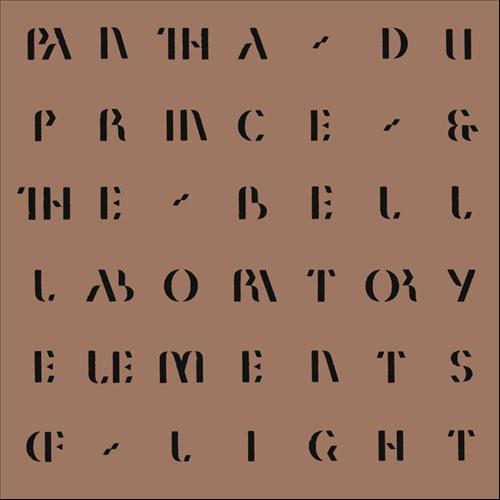It’s not surprising Pantha Du Prince is the last man standing from Dial’s seminal decade long run of downer house which gave us the likes of Lawrence’s The Absence of Blight, Efdemin’s 2007 self-titled, and, yep, Pantha Du Prince’s This Bliss. But it wasn’t until that latter record’s follow up, Black Noise, released on Rough Trade in 2010, that the German producer truly had his cross over moment. The factors are numerous and debatable, but Hendrik Weber’s glassy and intricate minimal techno sound sculptures were some of the most inviting and singular in all of dance music. It also helped that Weber’s approach was unique enough to weather a rapidly changing techno landscape that had started to take notice of London (and vice versa) and its rapid transformation and fracturing. If nothing else (and despite this reviewer regarding it as an inferior record), Black Noise made it clear Weber wasn’t beholden to Dial and This Bliss.
Elements of Light, Pantha Du Prince’s first record since Black Noise, is a tricky release. It might further Weber’s trek into his own cordoned off area of techno, but not by much. Rough Trade is pushing it like a true follow up to Black Noise, but even within the first few minutes it’s obvious the record’s collaboration with Norway’s The Bell Laboratory is the album’s sole focal point. To a fault even. Elements of Light is a single piece of music despite being broken into five parts of various lengths and its forty-minute run time doesn’t break from the use of spindly, melodic layers of the titular bells. Bells and chime-y percussion are all but synonymous with Pantha Du Prince, so at first glance the collaboration is almost painfully obvious, but there’s simply a stark lack of textural variation that turns the record into an interesting–and listenable–yet minor curiosity instead of Weber’s “most ambitious project to date” as the album has been pitched. It’s certainly not an appropriate follow up to Black Noise.
Those expectations could simply be three years with no new material rearing their head, however. Elements of Light is still a worthwhile and pleasant enough listen and it’s perhaps telling of how comfortable Weber is in his own shoes at this point in his career. It just doesn’t have enough ideas beyond its premise to justify a whole album. “Wave” sets things up with a wavering bell sequence reverberating into untreated, organic space, tones stretched and hovering before more layers are added. “Particle” kicks the tempo into double-time, exchanging bell patterns, before a steady 4/4 and some squelching synth textures finally arrive. It’s here where Weber sinks his fingers in and starts to warp the bell sounds into minor cobwebbed textures and polyrhythms and things careen into recognizable territory. The bells themselves sound beautiful when they have the room to really breathe and ring with nothing cluttering their surroundings. The end of “Particle” cuts out the more syncopated tones and lets some icy, whispered organic drone sounds curl beautifully around the silky house rhythm.
“Photon” is where things start to kind of double-back on themselves and desensitize as the record’s concept begins to wear a little thin. The production quality never wavers, but neither do the textures. Still, the record’s strongest moment and seeming climax comes near the middle of “Spectral Split” as its synth melody solidifies, heading skyward, the whirl of bells clamping around the song’s core in a jubilant and bright dance worthy of the album’s title. But Elements of Light ultimately feels like a stop off between Black Noise and whatever Pantha Du Prince has waiting on the horizon. The fruit of his collaboration with The Bell Laboratory is worth investigating even if it doesn’t manage the depths of previous Pantha Du Prince LPs. The slightness only comes in its lack of scope rather than anything outright qualitative. Sure, it’s hard to shake that this is the first thing we’re hearing from Hendrick Weber in three years, but there’s still every reason to hope for further greatness out of him.

